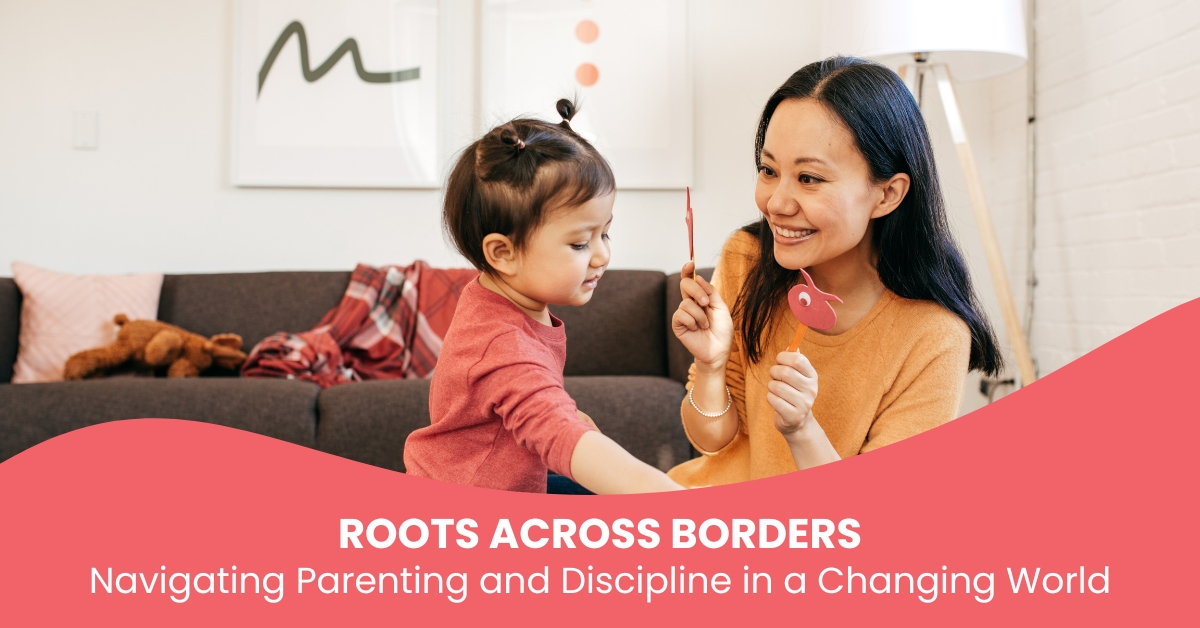
In today’s fast-moving global world, moving across cities, countries, and even continents is becoming a way of life for many families. Whether it’s for better job opportunities, education, or simply the call of adventure, thousands of families each year find themselves setting up homes in places far different from where they began. While the move can be exciting, it also brings a unique set of challenges—especially for parents. Finding an appropriate school, for example an IB PYP Early Years programme or a daycare with an international curriculum can be a challenge. One of the most tender and complicated aspects of this journey is figuring out how to raise and discipline children in a new culture, without losing the essence of your own values.
This is the heartfelt story of so many expat families—trying to anchor their children in love, discipline, and understanding, while living amidst unfamiliar geographies, languages, and customs.
A Journey of Change, A Journey of Growth
Imagine a family from India moving to Germany. The parenting styles between these two cultures can differ significantly. Where one may be more community and authority-driven, the other may emphasize independence and open conversation. At first glance, these differences might feel confusing or even threatening. But with patience and curiosity, they can become opportunities for deep connection, both with your child and with the new world around you.
Parents often carry a silent worry: Am I doing the right thing for my child in this new place? Will they grow up confused about who they are? These questions are valid—and natural. The answer, more often than not, lies in balance.
Understanding Before Enforcing
One of the first steps in disciplining children across cultures is learning. Take the time to understand the local customs and values where you live. For example, in Scandinavian countries, there is a strong focus on respectful dialogue with children. Physical punishment is not just frowned upon—it’s illegal. On the other hand, many Eastern cultures still accept more traditional, strict approaches to discipline.
Neither is entirely right or wrong. The magic lies in blending the best of both worlds. If your host culture values open communication and positive reinforcement, try introducing those elements into your home. Instead of saying, “Do this because I said so,” say, “Let’s talk about why this is important.” Small shifts can make a big difference.
Keeping Your Roots Alive
While it’s important to adapt, it’s equally vital to keep your own family values strong and visible. These are the roots that your children will hold onto, no matter where they live. Talk to them about your traditions, your beliefs, and your reasons behind certain rules. Let them ask questions. Let them disagree. This is where true understanding grows.
Involving extended family—even if only virtually—can help keep that sense of heritage alive. A video call with grandparents, a traditional story told at bedtime, or celebrating festivals from your homeland can create emotional anchors for your children. These rituals become their safety nets.
Conversations That Matter
Children are deeply observant. They notice how different things are around them—how other kids talk to their parents, how teachers behave in school, and even how rules are enforced in public spaces. Create a safe space for these observations to turn into meaningful conversations.
For example, if your child asks, “Why do my friends not get scolded when they say no to their parents?”—instead of brushing it off, explore the thought. Say, “That’s interesting, isn’t it? Some families believe it’s okay to say no respectfully. In our family, we also value respect, but we show it in a different way.”
These are powerful moments. They teach children not just to obey rules, but to understand them. And more importantly, they learn that it’s okay to hold multiple truths at once.
Discipline as Connection, Not Control
Discipline doesn’t have to be about punishment. In fact, the most lasting lessons come from love and trust. When children know they are heard and respected, they are more likely to listen. When they see you balancing two cultures with grace, they learn flexibility, empathy, and strength.
A parent living abroad once shared, “We used to be stricter back home. But here, we saw how much more our son responded to encouragement. So we changed. It wasn’t easy, but it brought us closer.”
That’s what conscious parenting is all about—not control, but connection.
Nature as a Teacher
Sometimes, in the rush of modern life, we forget to slow down. One of the most universal ways to reconnect with your child—no matter where in the world you are—is through nature. Whether it’s a quiet walk in the park, collecting leaves, or watching the sky change color, nature has its own silent lessons: patience, diversity, change, and peace.
Take your child out for a walk, no matter the country you’re in. Let them feel the wind, touch the soil, listen to the birds. In those moments, you are not teaching discipline through rules—but through presence.
A Home That Travels
In the end, your home is not a building. It’s not in one country. It’s in the stories you tell, the values you live by, the laughter around your dinner table, and the quiet reassurances you give when your child feels unsure.
Moving across geographies will always come with its highs and lows. But if you can hold on to love, flexibility, and deep listening, your children will not be lost. They will be grounded—and beautifully open to the world.
Parenting across cultures is not just a challenge—it’s a gift. It allows you to raise children who are sensitive, adaptable, and deeply aware of the world’s diversity. It teaches us, as parents, to be humble learners and wise teachers.
So, breathe. Let your values and the beauty of other cultures dance together. And in doing so, you’ll create a home where your children can thrive—no matter where life takes them.






